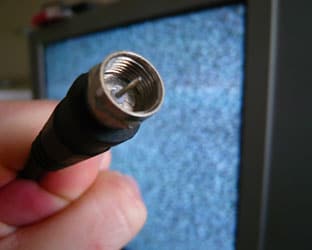BOCA RATON, FLA. — The controversial local broadcast TV streaming service some companies believe is illegally distributing stations without a retransmission agreement has invaded South Florida’s two DMAs.
Locast services are now available in the Miami-Fort Lauderdale market, which includes the Florida Keys; and the West Palm Beach-Boca Raton-Fort Pierce market, which includes the Treasure Coast.
“For the first time, Floridians located within the Miami and West Palm Beach DMAs will be able to watch their local TV stations on their phones, tablets, laptops or streaming media devices,” said Locast Founder and Chairman David Goodfriend; he did not note that Xfinity customers are already able to do so via an app available to them. “Local TV news is critical for broadcasting alerts about hurricanes, elections and coronavirus-related restrictions, making Locast an important lifeline for South Florida residents and for those who can’t get local TV channels from an off-air antenna or cannot afford a pay-TV subscription.”
With Locast, viewers using internet-connected devices can watch, for free, their locally produced broadcast TV in high definition via the Locast app or at www.locast.org. Locast also offers multi-language support by giving Spanish-language access to the Locast app’s user-interface, log-in screens, and program guide.
It’s an option that could appeal to cord-cutters and those who eschew Comcast, Atlantic Broadband, Dish or DirecTV paid services should all they wish to get are over-the-air stations a $24 digital antenna may not be able to pick up in their home.
At RBR+TVBR‘s home editorial office in Delray Beach, Fla., over-the-air reception of an ABC affiliate is not possible, due to the distance from WPLG-10 in Miami’s tower and that of WPBF-25 in Tequesta, Fla.
Locast resolves that problem, bringing to those who sign up for the donation-based service everything they’d get with a rooftop antenna — with limitations, of course, by DMA. That’s a plus, or a minus, depending on one’s viewpoint. The RBR+TVBR home editorial office enjoys reception of WFOR-4, WTVJ-6, and WLTV-23 from Miami via a digital antenna. Locast will not deliver those stations as Delray Beach is within the West Palm Beach DMA.
The addition of the two South Florida TV markets is a big move for Locast, which in June added its 19th U.S. market — the sprawling Tampa-St. Petersburg-Clearwater DMA, which includes Sarasota-Bradenton, Lakeland-Winter Haven and Sebring-Lake Placid, Fla.
Importantly, and to the consternation of the NAB and TV networks, Locast is doing so for free.
“Locast provides a public service by giving access to important local news, hurricane and storm coverage, emergency information, sports, and entertainment programming to internet-connected devices,” it says.
That may be true, but the NAB and the nation’s broadcast TV networks are hardly cheering Locast’s existence, let alone its arrival in a fourth market this year. In January, Locast landed in Sioux City, Iowa. In February, it added Puerto Rico, where Univision and Spanish Broadcasting System (SBS) have a stake in the action.
Locast is available for streaming at www.locast.org, and through various app stores, on Dish Hopper/Wally receivers, select DirecTV receivers, TiVo, and at streaming service providers Google Play, Apple TV, Android TV, Amazon and Roku.
As Locast sees it, its business model is permissible under the Copyright Act of 1976 — in that the rulemaking allows nonprofit “translator services” to rebroadcast local stations without receiving a copyright license from the broadcaster.
Further, federal statute (17 U.S.C. 111(a)(5)) states, according to Locast, that a nonprofit organization may retransmit a local broadcast signal and even collect a fee to cover the cost of operations. Locast asks viewers to donate “as little as $5 per month” to help cover operating costs. But, the donation is voluntary and not required to view local TV channels from Locast.
Still, the NAB and the broadcast networks want to put a stop to Locast.
In July 2019, an effort driven by the nation’s four major broadcast television networks — with the endorsement of the NAB — was launched in a New York Federal District Court to decide whether or not an entity that considers itself to be “a nonprofit streaming service serving viewers unable to tune to their local off-air TV channels” should be shut down.
Two months later, the service — Locast — countersued.
The networks noted in 2019 that Locast’s attempts to equate itself to a booster or translator station should be tossed by the courts.
Thus far, litigation has hardly crippled Locast to the extent that it did to the now-defunct Aereo, a New York-based tech company that offered a service in which the user could view live and time-shifted streams of over-the-air television on internet-connected devices.
Backed by Barry Diller‘s IAC, Aereo debuted in March 2012. On June 28, 2014, Aereo suspended its services, in the wake of a Supreme Court ruling made three days earlier that found Aereo infringed upon the rights of the copyholders — broadcast networks that are now suing Locast.
This hangs heavy over Locast and David Goodfriend, who founded it thanks to, the networks assert, “a sizable loan from a company founded by another former DISH executive.”
To make matters worse, Zweifach claims on behalf of the networks, AT&T recently disclosed a donation of $500,000 to Locast. AT&T is the owner of DirecTV, the just-renamed AT&T NOW vMVPD service, and U-Verse.
To avoid obtaining retransmission consent agreements from local broadcasters, Zweifach suggests, DISH is promoting a version of its Sling TV internet television service that does not carry local broadcast channels by telling potential customers that they can “supplement” Sling TV by getting the broadcast channels via Locast.
Because of this, the networks argue, “Locast is not the noncommercial, community public service it purports to be. It is a strategic play funded by and functioning for the benefit of decidedly commercial interests.”





